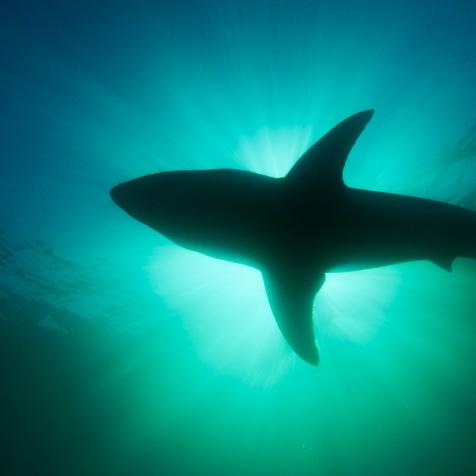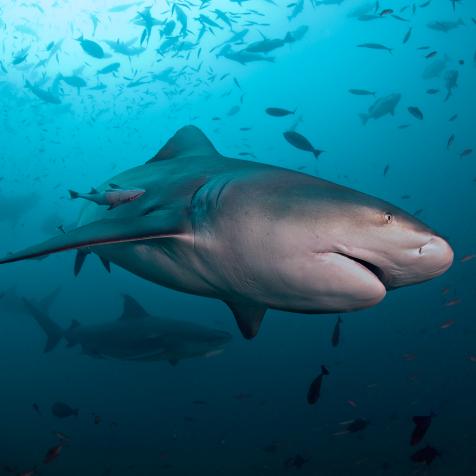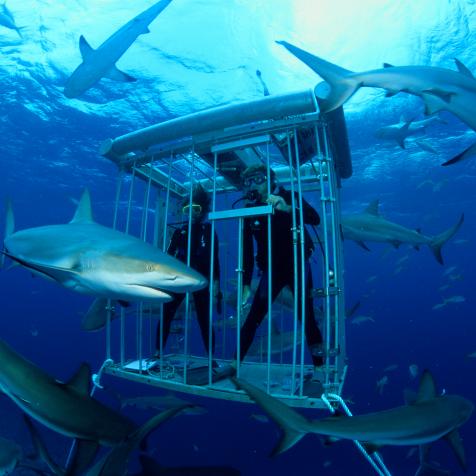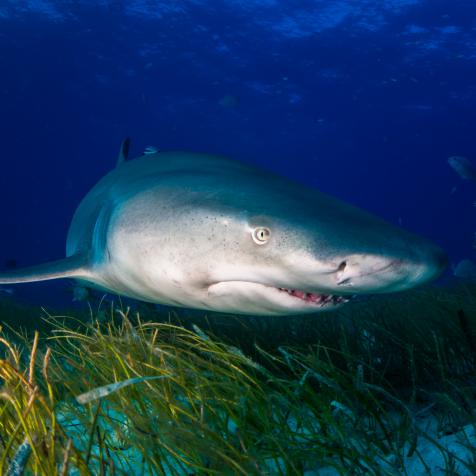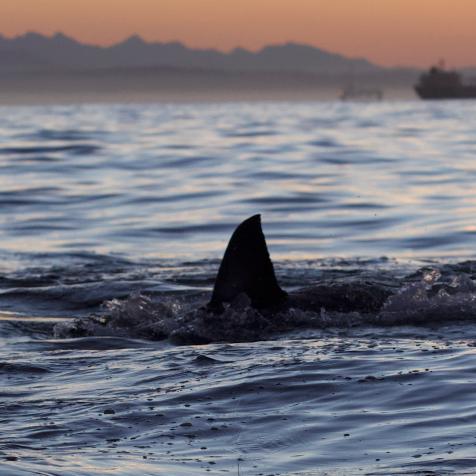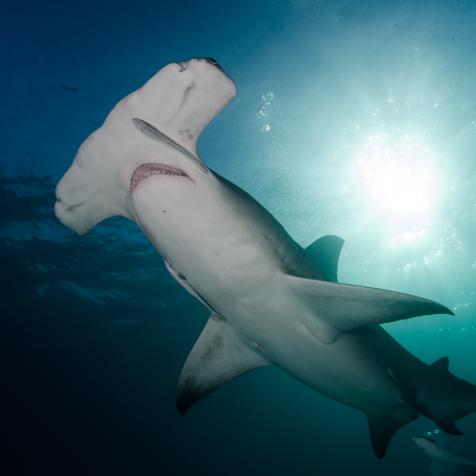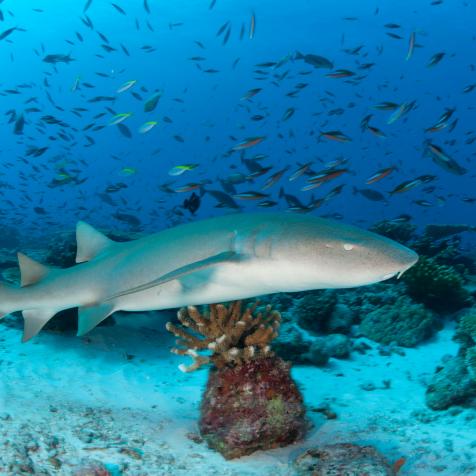
Caterina Gennaro
The Amazing World of Sharks
Today is Shark Awareness Day! The Explorers Club went live on Facebook to do a deep dive on the importance of sharks in our ecosystem.
In honor of Shark Awareness Day, The Explorers Club and host Dr. Austin Gallagher, CEO & Chief Scientist of Beneath the Waves, dove into the wonderful world of sharks with experts from all around the world last night. Guest speakers included:
- Chris Fischer: OCEARCH Founding Chairman and Expedition Leader
- Ilena Zanella: Marine Biologist & Magister Scientiae in Wildlife Management and Conservation for the Institute of the same name (ICONVIS). She is also the co-founder and Executive Director of Misión Tiburón.
- Jasmin Graham: Marine Biologist and member of the American Elasmobranch Society and Co-Founder of MISS, Minorities in Shark Science.
- Jaida Elcock: Jaida is an incoming graduate student at the University of Washington with a focus on elasmobranch ecology and conservation. She is also one of the co-founders of MISS.
- Stella Diamant: Founder, Madagascar Whale Shark Project
And while here at Discovery we're looking forward to SHARK WEEK, which starts on August 9th, we love to shine a light on all things sharks. During the 90-minute livestream, each expert shared an overview of their active projects and research to help people understand a shark's role in the ecosystem and protect these majestic predators.

Dr. Rocky Strong
Fourteen or fifteen foot great white shark preys on Cape fur seal.
"We're losing way too many sharks, too fast. When we lose our apex predators, the second tier of the food chain changes its behavior, and wipes out the food chain below it," said Chris Fischer. "For example, one [great] white shark can keep hundreds of seals pinned on the beach all day long by swimming up and down the beach. If that [great] white shark is not there, we know that all of those seals will feed 4 times more per day than if that one [great] white shark is there. And what they do is wipe out your fish stocks--they wipe out the lobster, the salmon, the stripers, the cod, and everything else."
In addition to predatory sharks, whale sharks, aka the gentle giants, are still a mystery and we need to learn more to help them. "No mating or birth events have ever been recorded, and that is a key missing piece of the puzzle to understand how to better protect them around the world. On top of that they are disappearing at an alarming rate, due to ingesting plastic, bycatch through fisheries, and the illegal trade. With all these things combined, I realized not enough was being done on the ground in Madagascar for these sharks," said Stella Diamant.
On the concept of scientific communication, Jaida Elcock said, "...you can't expect people to try and conserve different animals if they don’t really care about them or if they don’t even know about them."

Grander mako swimming off the Channel Islands.
On diversity in marine science, Jasmin Graham, co-founder of MISS (Minorities in Shark Sciences), wants to make sure people feel that "shark science is for everyone." Diverse perspectives and thoughts can help the future of shark conservation. "Helping people feel like they have a place, helping them find all the doors and opportunities that will allow them to access shark science, that ultimately adds to the diversity in the field. If you have a diversity of people, you have diversity of thought, because you have people coming from different backgrounds with different life perspectives, and they can create new and innovative ideas... In science where we're always trying to solve these big problems, having as many perspectives as possible is going to help us reach our goals - because shark conservation is a big issue, and we need everyone, all hands on deck to tackle the issue."
Getting young kids interested early can also help. "Society tells you that they're scary and you think that they're scary. So if we start out young...and really engage with audiences early on, we can help promote elasmobranch conservation from an early age, and hopefully with that, the next generation will be more sustainably minded, and more conservation minded," said Graham.
You can find out more about these incredible scientists and conservationists at The Explorers Club. Plus, watch the livestream that touches on the incredible research being done in the field by these scientists in addition to overall methodology and ways to handle different sharks.




































































